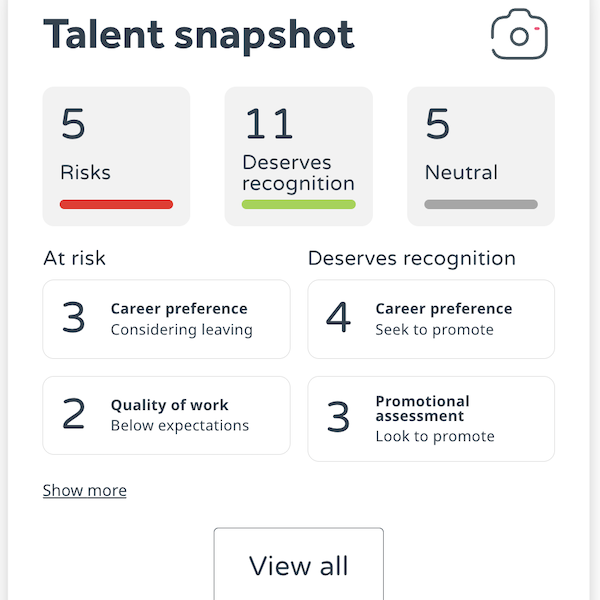
Well, they can’t. If the intention of the review is for performance to improve, some information will have to be passed between the manager and the report. You could call this knowledge transfer, but our preferred term is teaching – which means the same thing but is simpler.
Teaching is just the business of helping someone absorb information so that they have a bigger picture than they did before, so they become better at doing things that work well, which is fulfilling for them and useful to others. This may mean giving them information in a form they can understand, or it may mean helping them interpret information they already have but don’t ‘get’, but either way the teacher is facilitating the transfer of knowledge.
So the next problem is – what knowledge do you need to transfer, and how do you find it? And this is where WeThrive comes in, quietly and efficiently gathering the vital data you need to point your staff in a more productive direction, even when they are not aware of what the underlying problems really are. And the key thing is that the goals and action plans it creates for you are specific and directly related to the problems your staff are having in doing their work. Why not try it, free of charge, and make performance review mistakes a thing of the past.
PRP gives you concrete, specific ideas that are directly useful and relevant because they will help your staff do things better, whether that means doing their work itself, co-operating with others, or connecting better with the customers’ needs. Doing is key for us humans – we very rarely get excited about anything that doesn’t involve action, so if you want your staff to be motivated to work better the words you use in performance reviews must relate directly to real actions that take place in the physical world.
This means being specific about:
- What has worked well in the period under review (in a no-blame conversation)
- What needs to work better for the sake of staff, company and customers (the outputs from WeThrive go here)
- What steps are involved in achieving that, and what resources, training, etc will be needed for that to happen
There are some other subtleties involved that will radically improve the outcome, and we have put together some useful resources you can use to make the whole process of reviews easier and more effective. Look in our resources section for tip sheets on no-blame conversations, a teaching framework that will help your staff ‘get’ what you need them to know, and a free template for performance reviews that make working life better by turning an annual headache into mechanism for ongoing personal development.
Or just cut to the chase and get going with PRP – your annual reviews will never be the same again.
